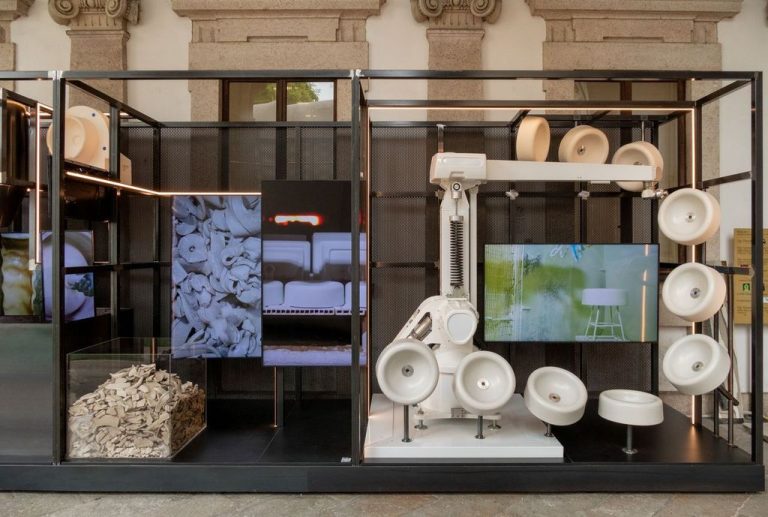Turkish conglomerate Eczacıbaşı Group’s leading brand, VitrA, and British designer Tom Dixon have unveiled an installation at INTERNI CROSS VISION 70, which is set to define the trend for future sustainable design.
Commemorating the 70th anniversary of Interni Magazine and titled “Re-Ceramic”, the installation explores the critical theme of waste reuse and recycling. Tom Dixon explains, “This installation is a narrative journey through the recycling process. Utilizing the casting technique, we immerse the viewer in the transformative journey of ceramics from ‘primordial mud’ to durable, functional art.”
The world’s first washbasin crafted from almost 100% recycled materials
The ‘Liquid’ line of sanitaryware is a centrepiece of the exhibition; this revolutionary product line was developed to almost entirely utilise recycled ceramic waste, representing a significant leap in sustainable design. VitrA says this approach not only showcases its commitment to environmental stewardship but also sets a new standard for the industry.
Tom Dixon was awarded an OBE for his services to British design, and VitrA’s shared commitment to innovation, sustainability, and design excellence is evident in this collaboration. The Liquid line reflects respect for natural resources.
Design community invited to Interni Cross Vision 70 to experience the best in design
INTERNI CROSS VISION 70 offers a platform to explore the symbiotic relationship between industrial innovation and artisanal tradition, themes that are deeply embedded in the Italian design ethos.
The exhibition celebrates the power of design to address complex global challenges, such as the climate crisis, through creative and technological innovation.
As the design community gathers in Milan to explore the future of architecture, design, and art, VitrA and Tom Dixon’s installation blurs the boundaries between art and industrial manufacturing to showcase the transformative power of design. By challenging conventional practices and embracing circular economy principles, Re-ceramic not only represents a significant milestone in the journey towards sustainable design but also ignites a conversation about the role of design in addressing some of the most pressing environmental challenges of our time.
For more information about the recycled washbasin, please visit Recycled Washbasin (vitraglobal.com)
*The entire basin is produced from nearly 100% recycled waste materials generated and disposed of during the ceramic sanitaryware manufacturing process.


